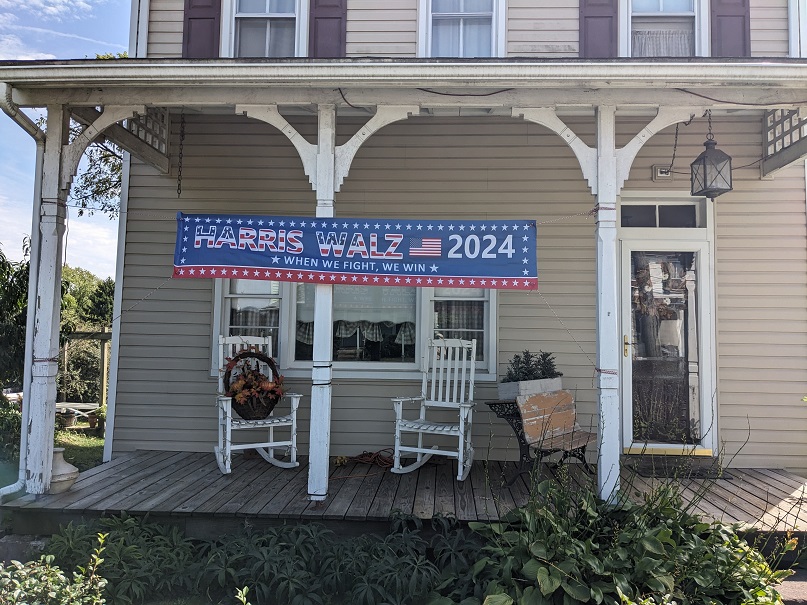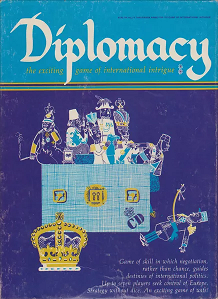Among the older games in my top 10 games list are several from the old school game company Avalon Hill. I’ve already posted about one of them on this blog. It was kind of inevitable for any nerdy gamer in the 70s or 80s who was into thoughtful strategy games to get caught up in this particular series. Another Avalon Hill game I played a good bit of in high school was Diplomacy, #9 on my list.
Diplomacy is a game of recreating the Great Power conflicts in Europe of the early 20th century, and had mechanics where you made alliances to support other players’ military campaigns. But the actual moves were written down secretly and simultaneously, which created an opportunity for backstabbing. It was a very tense and fun game for this reason.
In high school, we had a fun “live action” format (like PBEM before email) where one person would act as referee, handing out paper copies of the map’s current state to the players, and collecting everyone’s moves in written form. The moves were due once or twice a week, and if you didn’t turn them in or they were confusing to the ref, they would just revert to your units holding. The ref would calculate the new game state and hand out maps again. Our tools for making the maps were markers and photocopiers.
This was a great format because it meant that during the days when players were plotting their moves, they could easily meet in private to negotiate all their diplomatic shenanigans. Backstabbing was easier too because you could double-deal without the other players having any inkling of what you were doing, though there was always the chance for real life spying and eavesdropping to try to figure out what deals the other players were making. It was exciting and engaging and we got in a few games in my time in high school.
In college, I played with friends in the Wargamers Club, which was the only club I ever joined there. We only played Diplomacy around the table, but in a big room in the student center where people could meander off to the edges for their diplomatic discussions. It’s not as good a format as “live action,” but there were still shenanigans since you could talk to everyone whether or not you were actually coordinating with them, to disguise your true intentions. You could try to outsmart other players with deceitful negotiations, and the tension would build until you got to the glorious moment of a successful betrayal. Or you might suffer the ignominy of being betrayed yourself. Great fun.
One time I played a game that wasn’t so much fun, because some players didn’t seem to get the game. Really, they just played differently than what I was used to. I wrote a session report about it here: A Game without Double-Dealing, or, Don’t These Guys Know How to Play Diplomacy?
After college, I don’t think I ever played Diplomacy again. The closest game to it that I have played since then is A Game of Thrones (yes, based on the familiar series), which also has players coordinating moves and potentially backstabbing one another. I did have one great moment in Game of Thrones, which you can read about here: A Machiavellian Move in a Game of Thrones.
I’m not sure why I never played after school. The spirit of Diplomacy just wasn’t there in my new gaming circles, I guess, but I will always have fond memories of the game from my past.


